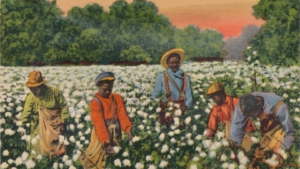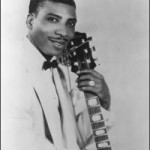The Issue on the Table: Is “Hamilton” Good For History?
In a new book, top historians discuss the musical’s educational value, historical accuracy and racial revisionism
Photo: Opening night of the Broadway musical “Hamilton” at the Richard Rodgers Theatre (WENN Ltd / Alamy Stock Photo)
(Smithsonianmag.com) Even if it hadn’t won big at the 2016 Tony Awards, Lin-Manuel Miranda’s Hamilton: An American Musical would remain a theatrical powerhouse and a fixture of contemporary American culture. It’s likewise been seen as a champion of U.S. history, inspiring Americans young and old to learn more about their founding fathers, particularly the “forgotten” Alexander Hamilton.
Professional historians are no exception to getting wrapped up in the excitement created by Hamilton, and they’ve begun to wonder what impact the show will have on history as an academic discipline. Though Miranda has said in interviews that he “felt an enormous responsibility to be as historically accurate as possible,” his artistic representation of Hamilton is necessarily a work of historical fiction, with moments of imprecision and dramatization. The wide reach of Miranda’s work begs the question of historians: is the inspirational benefit of this cultural phenomenon worth looking past its missteps?
Historians Renee Romano of Oberlin College and Claire Bond Potter of the New School in New York capture this debate in their new volume Historians on Hamilton: How a Blockbuster Musical is Restaging America’s Past, a collection of 15 essays by scholars on the historical, artistic and educational impact of the musical. Romano, who hatched the idea for the book, says she was inspired by “the flurry of attention and conversation among historians engaging with [Hamilton], who really had very divergent opinions on the quality, the work it was doing, the importance of it, the messages it was sending.” (more)
The Most Damaging Myths About Slavery, Debunked
(History) Were U.S. slaves in any way responsible for their own misery? Were there any silver linings to forced bondage? These questions surface from time to time in the American cultural conversation, rekindling a longstanding debate over whether the nation’s “peculiar institution” may have been something less than a horrific crime against humanity.
When rapper and clothing designer Kanye West commented on TMZ.com that slavery was a “choice,” and later attempted to clarify by tweeting that African Americans remained subservient for centuries because they were “mentally enslaved,” he set off a social-media firestorm of anger and incredulity. And after a charter-school teacher in San Antonio, Texas asked her 8th-grade American history students to provide a “balanced view” of slavery by listing both its pros and cons, a wide public outcry ensued. The homework assignment was drawn from a nationally distributed textbook.
Such controversies underscore a profound lack of understanding of slavery, the institution that, more than any other in the formation of the American republic, undergirded its very economic, social and political fabric. (more)
Commentary: The least we can do for Dallas’ first black voter is to protect her house
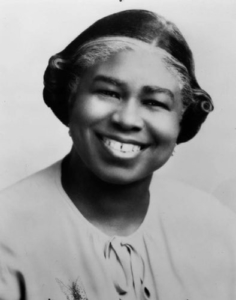
Juanita Craft as a young woman, when she increased the NAACP’s membership in Dallas and throughout Texas, and led protests and sit-ins.
(Dallas News) The 1930 Craftsman-style bungalow looks like any other on the block of this Fair Park neighborhood. Its white clapboard is perhaps brighter, more intact, its yard more manicured, but it is no less humble than any other home along Warren Avenue. Architecturally unimportant, its significance stems from what happened inside.
A woman named Juanita Craft lived here from 1950 until her death in August of 1985, when she was 83. During that time, and well before, Craft reshaped Dallas like few others before or since, gathering in this house a flock that became a family that became an army of makers of good trouble. It was a destination for foot soldiers and world leaders.
Her name adorns this house — and a rec center, a clinic, a post office. I guarantee most Dallasites do not know why. (more)
TIPHC Bookshelf
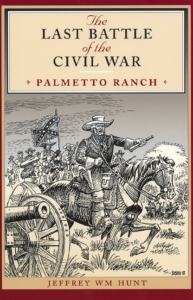 Published scholarship on black history in Texas is growing and we’d like to share with you some suggested readings, both current and past, from some of the preeminent history scholars in Texas and beyond. We invite you to take a look at our bookshelf page – including a featured selection – and check back as the list grows. A different selection will be featured each week. We welcome suggestions and reviews. This week, we offer, “The Last Battle of the Civil War, Palmetto Ranch,” by Jeffrey Wm Hunt.
Published scholarship on black history in Texas is growing and we’d like to share with you some suggested readings, both current and past, from some of the preeminent history scholars in Texas and beyond. We invite you to take a look at our bookshelf page – including a featured selection – and check back as the list grows. A different selection will be featured each week. We welcome suggestions and reviews. This week, we offer, “The Last Battle of the Civil War, Palmetto Ranch,” by Jeffrey Wm Hunt.
More than two months after Robert E. Lee surrendered the Army of Northern Virginia on April 9, 1865, the New York Times reported a most surprising piece of news. On May 12-13, the last battle of the Civil War had been fought at the southernmost tip of Texas—resulting in a Confederate victory. Although Palmetto Ranch did nothing to change the war’s outcome, it added the final irony to a conflict replete with ironies, unexpected successes, and lost opportunities. For these reasons, it has become both one of the most forgotten and most mythologized battles of the Civil War.
In this book, Jeffrey Hunt draws on previously unstudied letters and court martial records to offer a full and accurate account of the battle of Palmetto Ranch. As he recreates the events of the fighting that pitted the United States’ 62nd Colored Troops and the 34th Indiana Veteran Volunteer Infantry against Texas cavalry and artillery battalions commanded by Colonel John S. “Rip” Ford, Hunt lays to rest many misconceptions about the battle. In particular, he reveals that the Texans were fully aware of events in the East—and still willing to fight for Southern independence. He also demonstrates that, far from fleeing the battle in a panic as some have asserted, the African American troops played a vital role in preventing the Union defeat from becoming a rout.
May 28
On this day in 1910, guitarist Aaron Thibeaux Walker, “T-Bone,” was born in Linden. Walker became one of the most influential musicians on the blues scene and his 1947 hit, “Call It Stormy Monday,” is a blues standard. Walker grew up in Dallas and as a teenager led bluesman Blind Lemon Jefferson around the city collected tips for Jefferson’s street performances. Walker revolutionized the blues as one of the first (possibly THE first) to perform with an electric guitar. A great showman, Walker would play the guitar behind his head while doing the splits or play the guitar with his teeth. His performance style influenced artists like Chuck Berry and Jimi Hendrix. Walker was awarded a Grammy in 1970 for his album “Good Feelin’“. He was inducted to the Blues Hall of Fame in 1980 and the Rock & Roll Hall of Fame in 1987. He was ranked 47th on Rolling Stone magazine’s list of The 100 Greatest Guitarists of All Time.
May 29
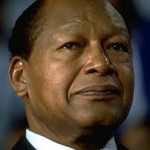 On this day in 1973, Calvert, Texas native Tom Bradley was elected as the first African American Mayor of Los Angeles. Bradley served for twenty years which is longer than any other mayor of the city. Born the son of sharecroppers and the grandson of a slave in Calvert, Bradley was instrumental in much of Los Angeles’s growth and it’s hosting of the 1984 Summer Olympics. Los Angeles became the nation’s second most populated city under his administration. Upon retiring from Mayor in 1993, Bradley ran unsuccessful campaigns for Governor of California in 1982 and 1986.
On this day in 1973, Calvert, Texas native Tom Bradley was elected as the first African American Mayor of Los Angeles. Bradley served for twenty years which is longer than any other mayor of the city. Born the son of sharecroppers and the grandson of a slave in Calvert, Bradley was instrumental in much of Los Angeles’s growth and it’s hosting of the 1984 Summer Olympics. Los Angeles became the nation’s second most populated city under his administration. Upon retiring from Mayor in 1993, Bradley ran unsuccessful campaigns for Governor of California in 1982 and 1986.
Blog: Ron Goodwin, Ph.D., author, PVAMU history professor
Ron Goodwin is an assistant professor of history at Prairie View A&M University. Even though he was a military “brat,” he still considers San Antonio home. Like his father and brother, Ron joined the U.S. Air Force and while enlisted received his undergraduate degree from Texas Lutheran University in Seguin, Texas. After his honorable discharge, he completed graduate degrees from Texas Southern University. Goodwin’s book, Blacks in Houston, is a pictorial history of Houston’s black community. His most recent book, Remembering the Days of Sorrow, examines the institution of slavery in Texas from the perspective of the New Deal’s Slave Narratives.
Recent Posts
King of Kings
During his lifetime Martin Luther King consistently paralleled the experiences of the biblical Children of Israel and the experiences of Africans in America. As a result, he thrust himself into the role of Moses. What I find interesting in these parallels was the ultimate goal of the story. The Children of Israel, after 400 years of bondage, eventually made their way to the Promised Land. This was the message that I believe King was ultimately…
Wakanda Forever — Part 2
The internet records the following regarding the financial success of the Black Panther as of March 25, 2018: Receipts grossed $631.4 million in the US and Canada and a worldwide total of $1.239 billion; The film made $370.5 million worldwide in its opening weekend (the 15th largest of all time); Thus far, Black Panther is the highest-grossing solo superhero film and the 3rd third highest-grossing movie in the Marvel Cinematic Universe (MCU); and In only five weeks after…
Submissions wanted
Historians, scholars, students, lend us your…writings. Help us produce the most comprehensive documentation ever undertaken for the African American experience in Texas. We encourage you to contribute items about people, places, events, issues, politics/legislation, sports, entertainment, religion, etc., as general entries or essays. Our documentation is wide-ranging and diverse, and you may research and write about the subject of your interest or, to start, please consult our list of suggested biographical entries and see submission guidelines. However, all topics must be approved by TIPHC editors before beginning your research/writing.
We welcome your questions or comments. Please contact Mr. Michael Hurd, Director of TIPHC, at mdhurd@pvamu.edu.

